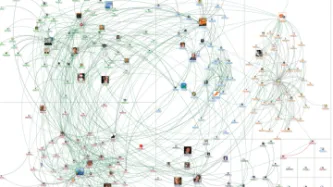Search
Content type: News & Analysis
Privacy International’s campaign for effective export controls of surveillance technology is still ongoing, but for one company, action can already be taken by HM Revenue & Customs to hold stop their unethical practices. Here is the story so far...
Privacy International has been investigating the trade in surveillance technology for almost two years as part of our Big Brother Incorporated project. Our research showed the capabilities of surveillance technology has grown hugely in the…
Content type: News & Analysis
The first joint report from the Committees on Arms Export Controls (CAEC), released last Friday, highlighted the importance of careful licensing and independent scrutiny for the export of ‘controlled’ goods, to prevent sales that could ‘facilitate internal repression’ in authoritarian regimes abroad. And as we wrote yesterday, the Committees advised that 10 Downing Street should make good on assurances PI was given in March that the problem of unlicensed surveillance exports would be addressed…
Content type: News & Analysis
The 2012 report of the Committees on Arms Export Controls (CAEC), released last Friday, has raised serious concerns over the government’s approach to arms exports, highlighting the use of British exports to facilitate repression and prolong conflict in authoritarian regimes abroad.
In his oral evidence to the Committees, the Foreign Secretary William Hague, stressed that the government’s position on granting export licences for goods on the Export Control list has not changed:
The long-…
Content type: Press release
The government today published a draft version of a bill that, if signed into law in its current form, would force Internet Service Providers (ISPs) and mobile phone network providers in Britain to install 'black boxes' in order to collect and store information on everyone's internet and phone activity, and give the police the ability to self-authorise access to this information. However, the Home Office failed to explain whether or not companies like Facebook, Google and Twitter will be…
Content type: News & Analysis
For the past 18 months, I've been investigating the export of surveillance technologies from Western countries to despotic regimes, but I never thought I'd see a democratic government proposing to install the kind of mass surveillance system favoured by Al-Assad, Mubarak and Gaddafi. Yet the Home Office's latest plans would allow the authorities unprecedented levels of access to the entire population's phone records, emails, browsing history and activity on social networking sites,…



